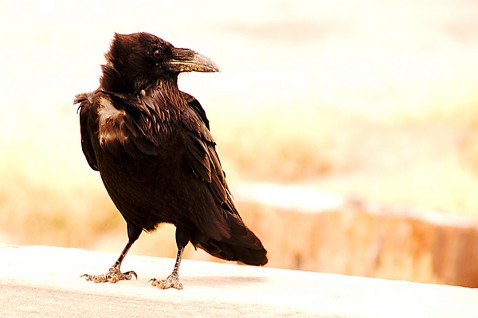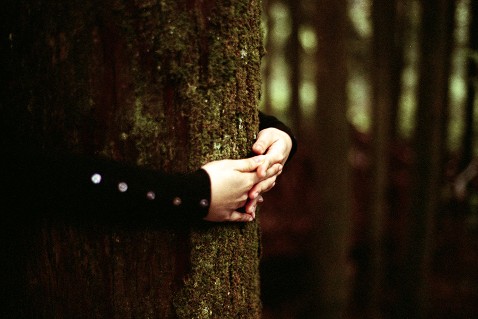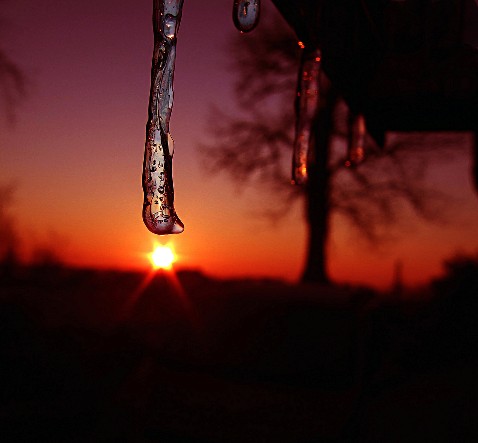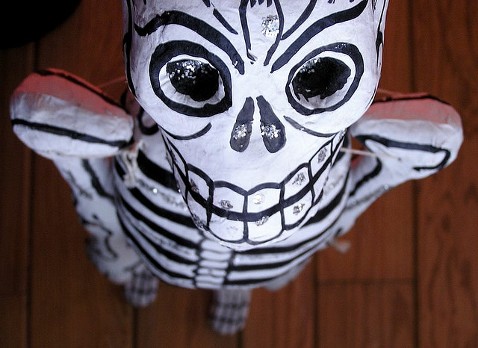lost and found
/
Cleaning out the basement was like finding a long spiraling staircase into our family, winding and intricate, exhausting and dizzying.
 photo by bourget_82.
photo by bourget_82.
"Today is Finder's Day," my daughter tells me as she plays with a baby toy she once adored. "The day we find things." We found a box of hand-me-down big boy clothes for Thor that we tucked away for when he was big--3T-4T. He fits into them now. It is good luck, I am informed as the children tug at me, showing me a wheat penny underfoot. I found clothing from my single working life. Six power suits ranging in sizes from Size 4 to Size 12, plus three additional maternity suits. T-shirts that went to New Zealand, Puerto Rico, California, Italy, New Jersey, across the border into Mexico to buy tequila on the cheap. I found my favorite jeans. Ever. My hoodies for cycling. That perfect skirt from Anthropologie with feather fabric. I found all the little shoes, some worn only twice, before Beezus grew out of them. We made a pile of baby stuff--high chairs and cribs and beds that are not quite adult-sized. We are done now with miniature things.
There were boxes of Christmas ornaments bought at the drug store on Christmas eve, made of cheap glass and glitter. Photographs of my parents married and remarkably young, one of my ex-husband and one of me--thin, drinking bourbon, and not wearing a bra. I found parts of myself lost through the years of grief -- the single person, the happy person, the moderate drinker, the tortured corporate lackey, the caregiver, the auntie, the non-grieving mother. I'd forgotten about those people. I searched their faces looking for something that might explain why my baby died and how I became this person.
I was stoic about the process, then grateful for it. Afterward, almost excited at all the space we now had in our basement and in our heads. As I dug through clothes, piles of boxes, I realized how this stuff kept me simultaneously in the past and in the future, but not anywhere close to the present. I kept skinny clothes for a day somewhere down the line where everything would be back to the way it was. It was the same thing with the baby clothes. It was as though we freed ourselves under the weight of next time. I dug through boxes and boxes of little girl clothes marked Beezus Aged Younger Than Now, but still they felt like Lucia's clothing. I saved them for her. I was still waiting for her even up until this miscarriage last month. I saved nothing of Thor's, I admit. I sent all his newborn things to babylost mamas waiting for their next baby to come. But the girl stuff, the stuff meant for Lucia, was put in bins, preserved for the little sister that never came.
Later in the day, I notice a dark stone nestled in moss outside. I bend to pick it up. A caracol shell broken and exposed, its spiral clear and strong. It is exquisite in its brokenness, still filled with something weighty like emptiness. Caracol, I realize, is Spanish. It is a snail shell--slate grey with white and black. The intricacies of its chambers remind me of the sacred spiral. Fibonacci's sequence. The divine ratio. I pocket it.
I had an obsession with drawing the Fibonacci sequence after Lucia died. 0, 1, 1, 2, 3, 5, 8, 13 , 21,...I wanted my kitchen backsplash to be designed in the shape of it-one tile, one tile, two tiles, three tiles, five tiles...the front walkway, the back brick pattern, a tattoo, her name.
If I added each loss, the thousands of losses after her death, with the last, the next, the next, grief expanded in me, cut me up into this spiraled pattern. I was put together in a twisting line of boxes something wholly different than I was, turned around and back again, but something like me. Or more me. Lost and found. I felt expansive, larger inside than out. Emoting the emptiness I felt. Her death erased the color of me, blurred my subtleties into pockets of blackness separated by a thin white delicate casing. I became the curious dark holes in the shell of me, lines curving downward, spiraling into a simple black dot.
Three plus years ago, I packaged my grief into bins for another day, put them in my basement. I kept doing that with each stage of clothing Beezus grew out of, waiting for Lucia to return and wear them. I hid the hope away in the chambers of my shell. They are labeled anger and guilt and regret and resentment. Sometimes they are labeled not giving a shit. They were parts of my grief that feel like vital organs. I couldn't imagine living without them, so I carried them on my back, filling the space around me. Until it broke off my back, nestled into a bed of moss and waited for someone to pick it up.
It is Finder's Day. We go into the backyard and pick all that we find. Squash blossoms and fiddleheads. Bark and dandelion. We soak them in vinegar and salt and sugar, serve the strange found food to the guests. We empty the bins of what we wish we were. The bins of what we used to be. The bins of envy. The bins with more children to fill the hole of the one we lost. We fill thirteen contractor bags of those wishes, give them away for another family to make a home, a large perfectly symmetrical shell of happiness that is broken to us, but perfectly useable to others, nonetheless. It is hopeful even.
Our life feels all new now without those bins. Our home is emptier than we thought it would be, but it is perfect, nonetheless.
What things did you pack away things for your child or children that were never used? Were you able to give it away, or do you hold on to those things? Why or why not? How do you think holding onto these things helps or hurts you? Conversely, what things have you lost and found in your grief journey?






